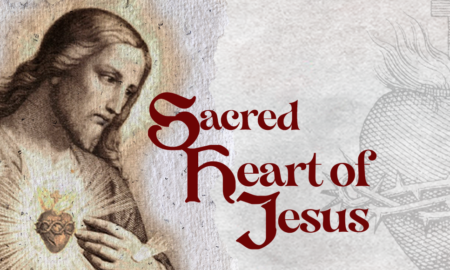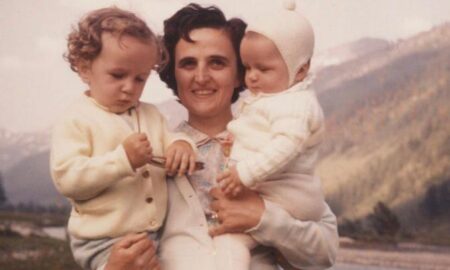Purgatory: a manifestation of God’s mercy
After the Celebration of the Faithful Departed, which we celebrated recently and prayed for the souls in Purgatory to be taken to God’s presence in Heaven, we can reflect on Purgatory and its importance for us Catholics as a great act of divine mercy.
By giving us Purgatory, God gives us the chance to purify ourselves so that we can finally be in His presence. The soul, even in a state of grace, can have the stain of sin, which prevents it from contemplating God face to face. Then, by divine grace, we have Purgatory!
But what is Purgatory like? St. Catherine of Genoa has left writings that portray Purgatory as the place of purification of souls, an interior fire, as Pope Benedict XVI said at the General Audience on January 12, 2011: “The saint speaks of the soul’s journey of purification, towards full communion with God, starting from her own experience of deep sorrow for the sins committed, in relation to God’s infinite love (cf. Admirable Life, 171v).” According to St. Catherine, Purgatory “is the place where there is more joy and more suffering than anything we know in this world”. Suffering because the pains of Purgatory are compared to fire, as St. Paul tells us in his First Letter to the Corinthians: “Now whether anyone builds on this foundation with gold or silver or precious stones or wood or hay or straw, each one’s work will show. The day (of judgment) will show it. It will be uncovered by fire; the fire will prove what each person’s work is worth. If the building stands, the builder will receive his reward. If it catches fire, he will bear the damage. He will be saved, but he will somehow pass through the fire (1 Cor 3:12-15).” And joy because souls, in the certainty of fulfilling the Father’s will and knowing that they are going to see God, could only be joyful.
The Church says about Purgatory that “the souls of the just who at the moment of death are still marked by venial sins or by temporal penalties due to sin go to Purgatory and the living faithful can help the souls in Purgatory through their intercessions (suffrages)” (Ludwig Ott, Dogmatic Theology Manual. 7. ed. Barcelona: Herder, 1969).
Are we, the living faithful, helping the souls in Purgatory? “No,” answers St. Francis de Sales, “we don’t remember enough of our dear departed friends. Their memory seems to fade with the ringing of the funeral bells. We forget that a friendship that ends, even in death, was never a genuine friendship”. And how can we help the souls in Purgatory? St. Augustine says that “one of the holiest works, one of the best exercises of piety that we can practice in this world is to offer sacrifices, alms and prayers for the dead” (Hom., XVI). The aforementioned St. Francis de Sales also says: “To assist the souls in Purgatory is to perform the most excellent of the works of mercy, or rather, it is to practice all the works of mercy together in the most sublime way: it is to visit the sick; it is to give drink to those who thirst for the vision of God; it is to give food to those who are hungry, to visit the imprisoned, to clothe the naked, to seek for the poor exiles the hospitality of the heavenly Jerusalem; it is to comfort the afflicted, to instruct the ignorant – it is, in short, to practice all the works of mercy in one.”
The Council of Trent states that the souls in Purgatory are assisted by the suffrages of the faithful, which means that we can offer God our prayers and our good works, provided they are impetratory or satisfactory. To understand this better, let’s know that each of our good works, when done in a state of grace, ordinarily has a triple value in God’s eyes:
- The work is meritorious, that is, it increases our merit, entitling us to a new level of glory in Heaven.
- It is impetratory (from ” to impetrate”, “to obtain”), that is, like a prayer, it has the virtue of obtaining graces from God.
iii. It is satisfactory, meaning that it has the capacity to satisfy Divine Justice and pay the debt of our temporal penalties before God.
Merit is inalienable and remains the property of the person performing the action. The impetratory and satisfactory values, on the other hand, can benefit others, by virtue of the communion of saints.
So what suffrages, according to the Church’s doctrine, can we use to help the souls in Purgatory? Prayers, almsgiving, fasting, penance, indulgences, and the holy sacrifice of the Mass. All the works we do in a state of grace, Our Lord Jesus allows us to offer to God the Father for the relief of our brothers and sisters in Purgatory.
Regarding indulgences, the Via Crucis – the Way of the Cross – is an effective devotion for granting the faithful departed eternal rest. According to the Manual of Indulgences, “a plenary indulgence is granted to the faithful who exercise the Way of the Cross piously”, and this indulgence can be applied to the dead as a suffrage, taking into account the following (conc. 63):
- The pious exercise must take place before the stations of the Way of the Cross, legitimately erect.
- Fourteen crosses are required to erect the Way of the Cross; along with the crosses, it is customary to place as many images or pictures representing the stations of Jerusalem.
iii. According to the most common custom, the pious exercise consists of fourteen devout readings, to which some vocal prayers are added. Pious meditation is required only on the Lord’s Passion and Death, without the need to consider the mystery of each station.
- Movement from one station to the next is required. But if the Way of the Cross is done publicly and it is not possible for all those present to move in an orderly fashion, it is sufficient for the leader to move to each of the stations, while the others remain in their places.”
“It should also be mentioned that the Way of the Cross is an act of piety with which one can gain a plenary indulgence every day of the year. The same is true of the “adoration of the Blessed Sacrament for at least half an hour” (conc. 3); the “spiritual reading of Sacred Scripture for at least half an hour” (conc. 50) and the “recitation of the Rosary of Our Lady in church, in the oratory or in the family or religious community or pious association” (conc. 48). We are speaking, therefore, of a devotion which, both because of the excellence of its object and because of the indulgences which are attached to it, constitutes a suffrage of the highest value for the holy souls in Purgatory.”
Our father and founder, Fr. Alexandre Paciolli, urges the members of the Merciful Gaze Community to practice the devotions of the Way of the Cross, the Holy Rosary, the Daily Mass, daily meditation on Sacred Scripture, in short, practices of piety that can be offered in suffrage for the souls of the faithful departed who are suffering in Purgatory.
How do I avoid Purgatory? What do you need to do to go straight to Heaven? Mother Maria Angelica of the Annunciation, founder of the EWTN group (Eternal Word Television Network), answered this question in a show. Click here and check out the video in which Mother Maria Angelica “reveals the secret” to “skipping” Purgatory.
References:
padrepauloricardo.org
vatican.va – The Holy See









